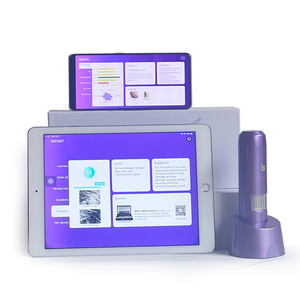Introduction to Effective Data Analysis
Effective data analysis is the backbone of informed decision-making in any business environment. In today's data-driven landscape, organizations are overwhelmed with vast amounts of information. Harnessing this data efficiently can lead to enhanced operational strategies, improved customer insights, and ultimately, greater business success. Understanding effective data analysis is crucial for translating raw data into actionable insights that propel your business forward.
Types of Effective Data Analysis
Effective data analysis can be classified into several key types based on its applications, methodologies, and objectives:
- Descriptive Analysis: This type aims to summarize past data to understand trends and patterns. It typically involves data visualization techniques, such as dashboards and reports.
- Diagnostic Analysis: Used to identify the cause of a particular event or trend by examining historical data. Tools such as correlation and regression analysis help in identifying relationships between data points.
- Predictive Analysis: This forward-looking analysis uses historical data to forecast future outcomes. Predictive models and machine learning algorithms play a crucial role in anticipating possible scenarios.
- Prescriptive Analysis: It recommends actions based on the analysis of data. Using optimization algorithms, it helps businesses make data-driven decisions to achieve desired outcomes.
Applications of Effective Data Analysis
The implementation of effective data analysis spans various business domains, enhancing operational efficiencies across the board:
- Marketing: Analyzing customer behavior and engagement helps organizations tailor their marketing strategies, optimizing ad spend and increasing conversion rates.
- Finance: Financial analysis aids in risk assessment, budgeting, and forecasting, enabling companies to make sound financial decisions.
- Supply Chain Management: Data analysis streamlines operations by optimizing inventory management and forecasting demand, leading to reduced costs and improved customer satisfaction.
- Healthcare: In healthcare, effective analysis aids in patient diagnosis, treatment optimization, and resource management, ultimately leading to better patient outcomes.
Features and Advantages of Effective Data Analysis
Investing in effective data analysis comes with several robust features and advantages that can transform your business approach:
- Enhanced Decision-Making: Effective data analysis provides substantiated insights that facilitate informed decision-making, reducing reliance on gut feelings.
- Improved Operational Efficiency: By identifying inefficiencies and analyzing operational data, businesses can streamline processes and reduce overhead costs.
- Increased Competitive Advantage: Companies that leverage data analysis can anticipate market trends and customer preferences, positioning themselves ahead of competitors.
- Customization and Personalization: Understanding customer data allows businesses to create personalized experiences, enhancing customer engagement and loyalty.



































